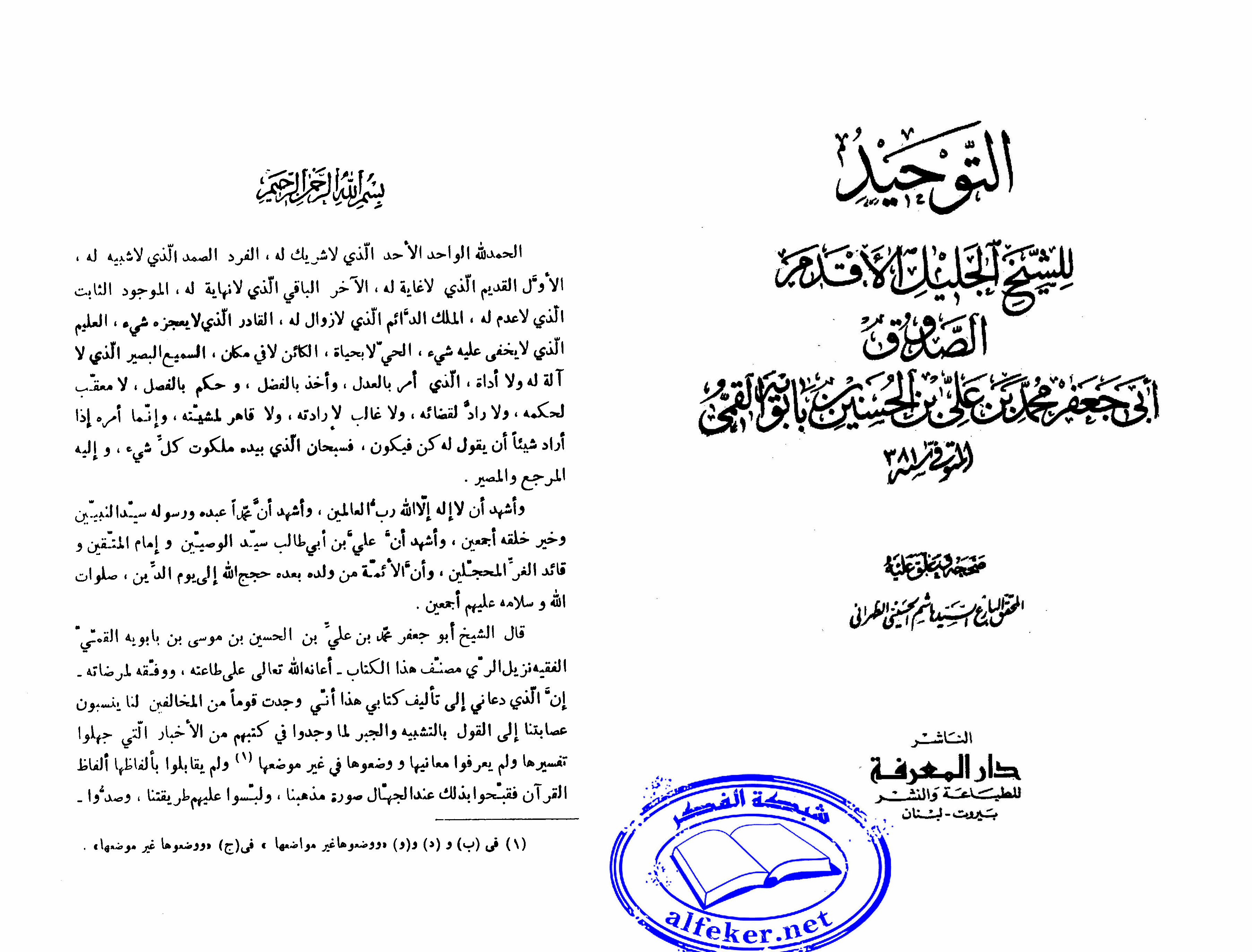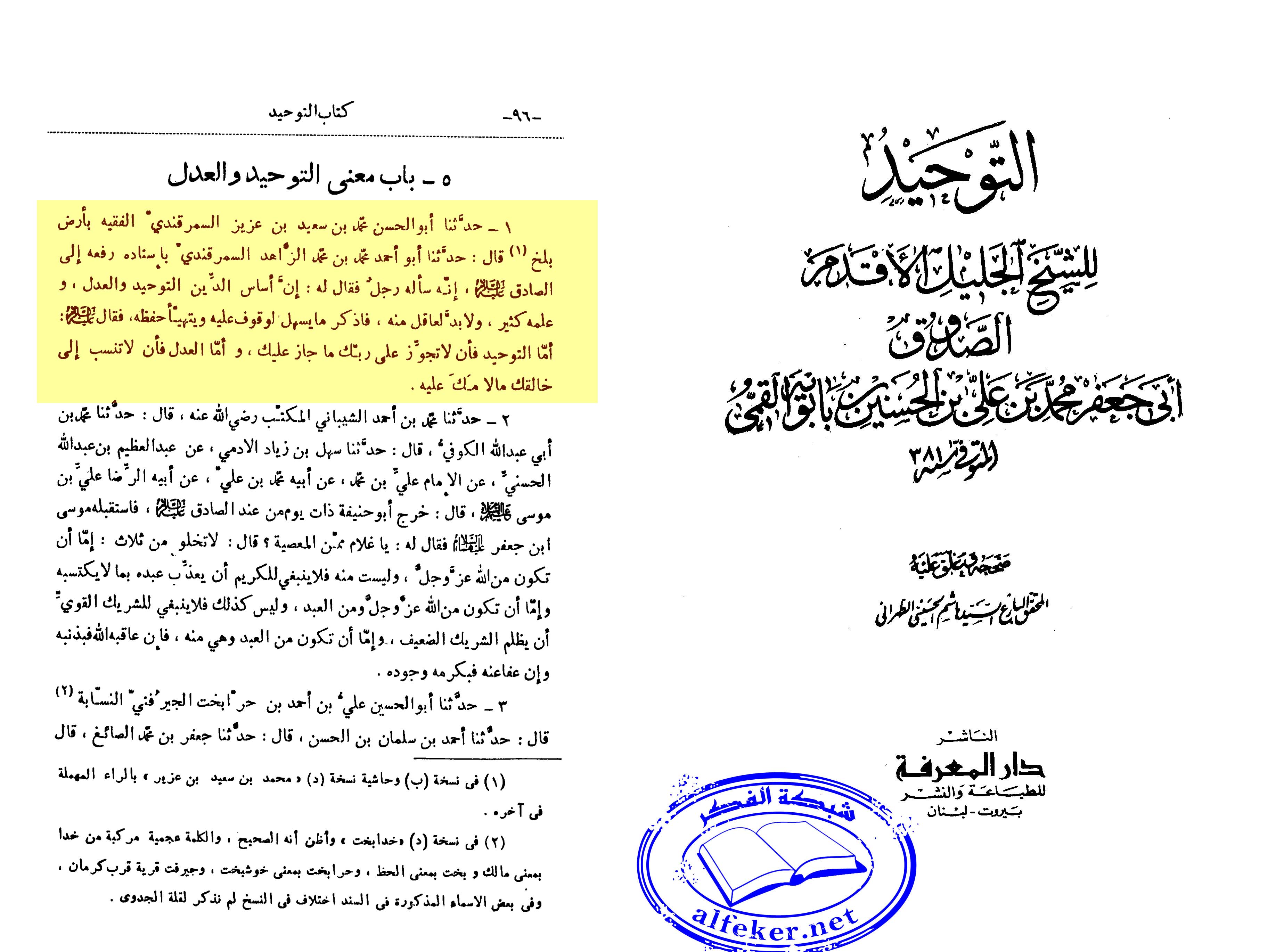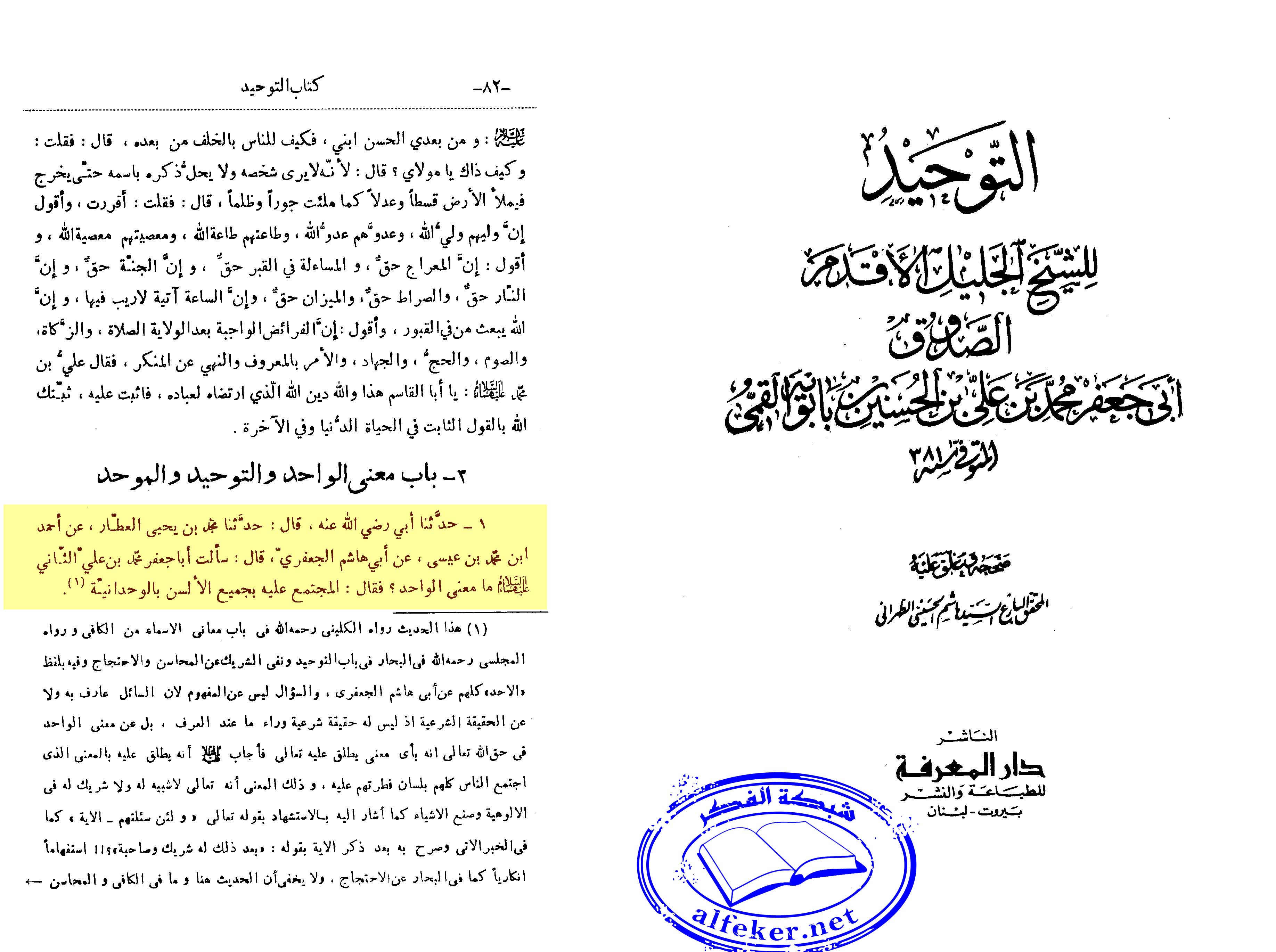The opening of Al Saduq book Kitab Al Tawheed is a praise and acknowledgment of Allah as the One and Only, with no partners or equals. It emphasizes His eternal nature, knowledge, and power. The text also declares the belief in the prophethood of Muhammad (peace be upon him) and the status of Ali ibn Abu Talib (may Allah be pleased with him) as the Master of the Appointed Guardians. The author, Abu Ja’far Muhammad ibn Ali ibn Husayn ibn Musa ibn Babawayh al-Qummi, compiled this book to counter the misconceptions and distortions about their sect's beliefs in anthropomorphism and determinism, aiming to establish the doctrine of Divine Unity.

We read in Kitab al Tawheed by shaykh al sadooq, pg number 96, hadith 1:

Abu al-Hasan Muhammad ibn Sa`id ibn `Aziz al-Samarqandi, the Jurist at Balkh, said: Abu Ahmad Muhammad ibn Muhammad al-Zahid al-Samarqandi with his own chain of narrators that he did not mention up to al-Sadiq (AS) that A man asked Imam Ja`far al-Sadiq (AS): Verily, Divine Unity and Divine Justice are the foundations of faith. Since His Knowledge is so great, it is not possible for even a wise man to understand it all. So, teach me something that is easy to understand and easy to memorize. He (AS) answered: “As for Divine Unity, do not describe your Lord the way you describe yourself. As for Divine Justice, do not apply to your Lord any of the shortcomings that you may apply to yourself.”
We read in Kitab al Tawheed by shaykh al sadooq, pg number 83, hadith 1:

My Father(shaykh saduq's father) (r.a) said: Muhammad ibn Yahya al-`Attar said on the authority of Ahmad ibn Muhammad ibn `Isa, on the authority of Abu Hashim al-Ja`far that I asked Abu Ja`far Muhammad ibn `Ali the Second (a.s), “What is the meaning of the One [al-Wahid]? He replied, “He is the One whose Divine Unity [al-Wahdaniyyah] is professed by all tongues.”
we read in nahjul balagha, where Ameerul momineen(as) says:
The foremost in religion is the acknowledgement of Him, the perfection of acknowledging Him is to testify Him, the perfection of testifying Him is to believe in His Oneness, the perfection of believing in His Oneness is to regard Him Pure, and the perfection of His purity is to deny Him attributes, because every attribute is a proof that it is different from that to which it is attributed and everything to which something is attributed is different from the attribute. Thus whoever attaches attributes to Allah recognises His like, and whoever recognises His like regards Him two; and whoever regards Him as two recognises parts for Him; and whoever recognises parts for Him mistook Him; and whoever mistook Him pointed at Him; and whoever pointed at Him admitted limitations for Him; and whoever admitted limitations for Him numbered Him. Whoever said: ‘In what is He?’, held that He is contained; and whoever said: ‘On what is He?’, held He is not on something else. He is a Being, but not through phenomenon of coming into being. He exists but not from non-existence. He is with everything but not in physical nearness. He is different from everything but not in physical separation. He acts but without connotation of movements and instruments. He sees even when there is none to be looked at from among His creation. He is only One, such that there is none with whom He may keep company or whom He may miss in his absence.